Introduction to K8sGPT and AI-Driven Kubernetes Engineering
Conclusion
Key Takeaways for Kubernetes Engineers
In this lesson, preparing for an AI-driven Kubernetes future, we share core insights every Kubernetes engineer should know.
Key Takeaways
- AI transforms Kubernetes and DevOps engineering by boosting efficiency and enabling data-driven decision-making.
- Tools like K8sGPT bring autonomous CLI agents that provision, configure, and maintain clusters.
- Engineering roles are shifting toward strategic AI orchestration over the next few years.
- New concerns—skill gaps, data privacy, and ethics—reshape but do not replace DevOps roles.
- The future is a symbiotic partnership between human engineers and AI agents.
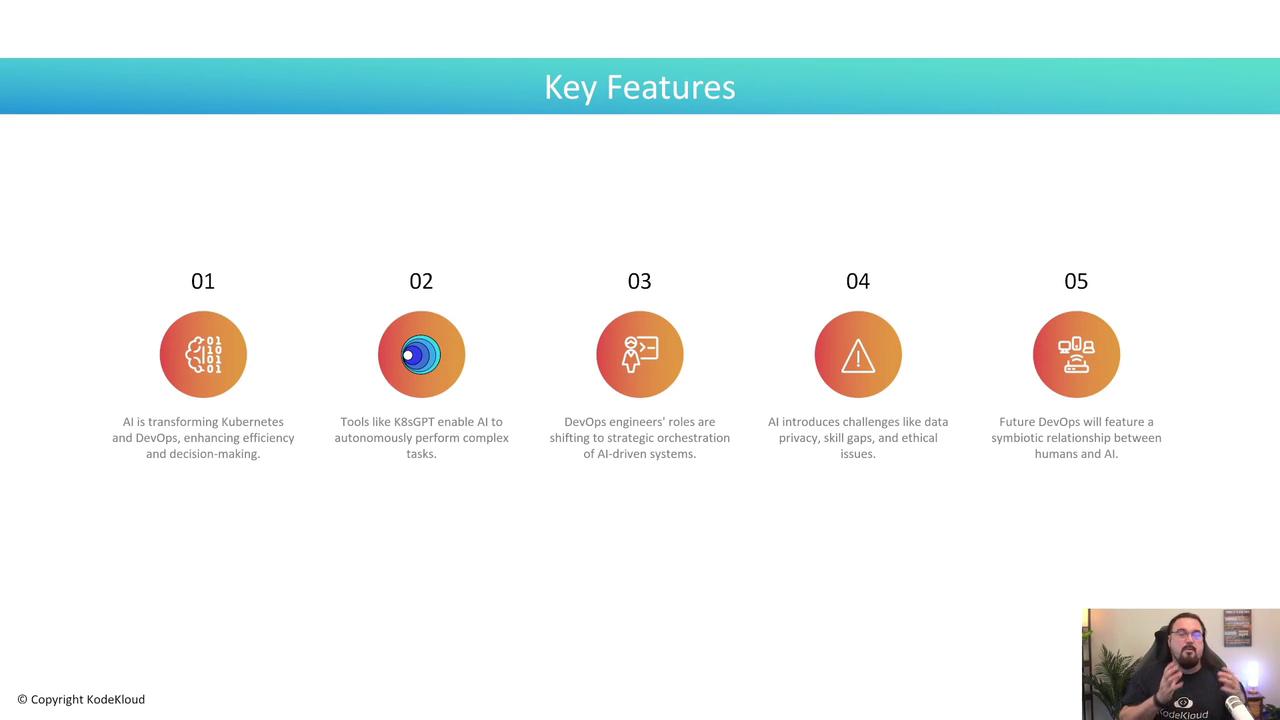
Essential Skills and Knowledge
To excel in an AI-driven Kubernetes environment, you’ll need:
- AI & machine learning fundamentals
- Deep Kubernetes expertise (clusters, controllers, CRDs)
- Programming and scripting (Python, Go, Bash) for edge-case handling
- Data engineering, analytics, and observability tools
- Systems design, architecture, and strategic thinking
- AI ethics, governance, and compliance awareness
- Strong communication and collaboration skills
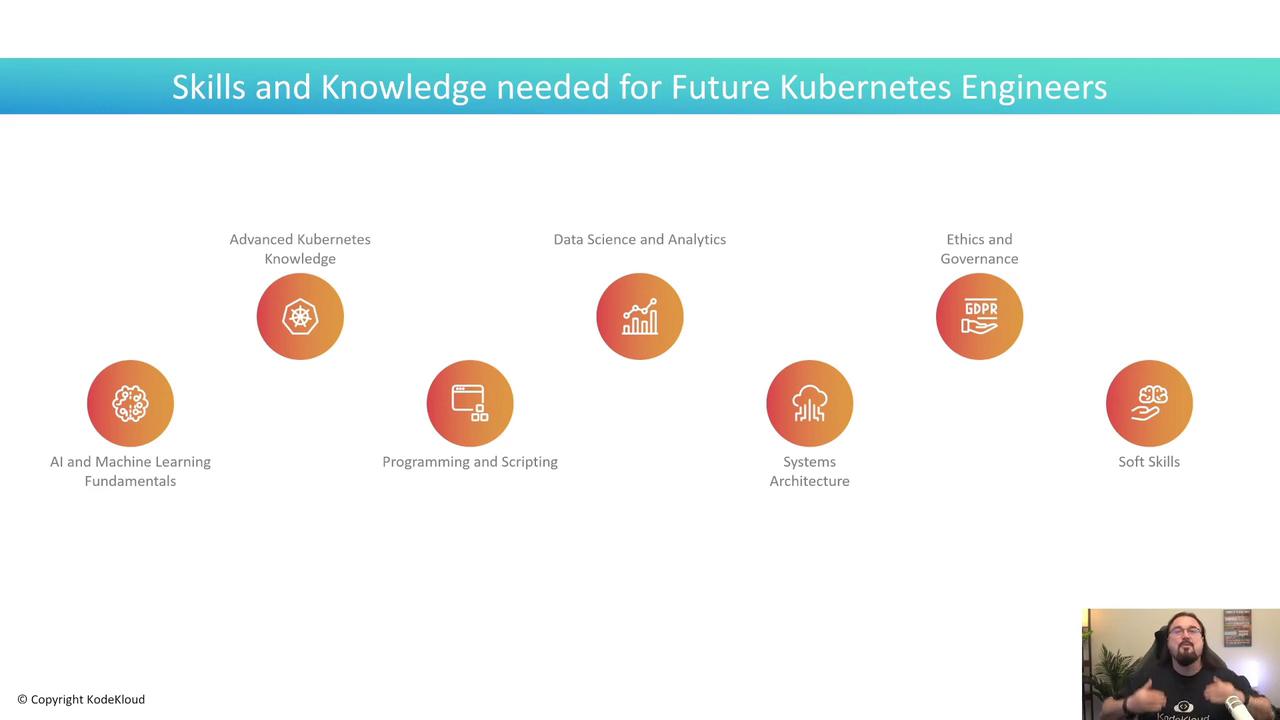
Resources for Further Learning and Development
Advance your expertise through these curated resources:
| Resource Type | Link | Notes |
|---|---|---|
| Thought Leadership | Andrew Ying’s blog | In-depth AI & Kubernetes analysis |
| Online Courses | edX AI in Kubernetes | Hands-on labs and video lectures |
| Books | AI-Assisted Python Programming | Practical AI coding examples |
| Community Forums | StackOverflow: AI for DevOps | Peer Q&A and best practices |
| Conferences | KubeCon, Gartner DevOps Summit | Networking, sessions, and workshops |
| Open-Source Projects | K8sGPT Repository | Explore autonomous K8s agents |
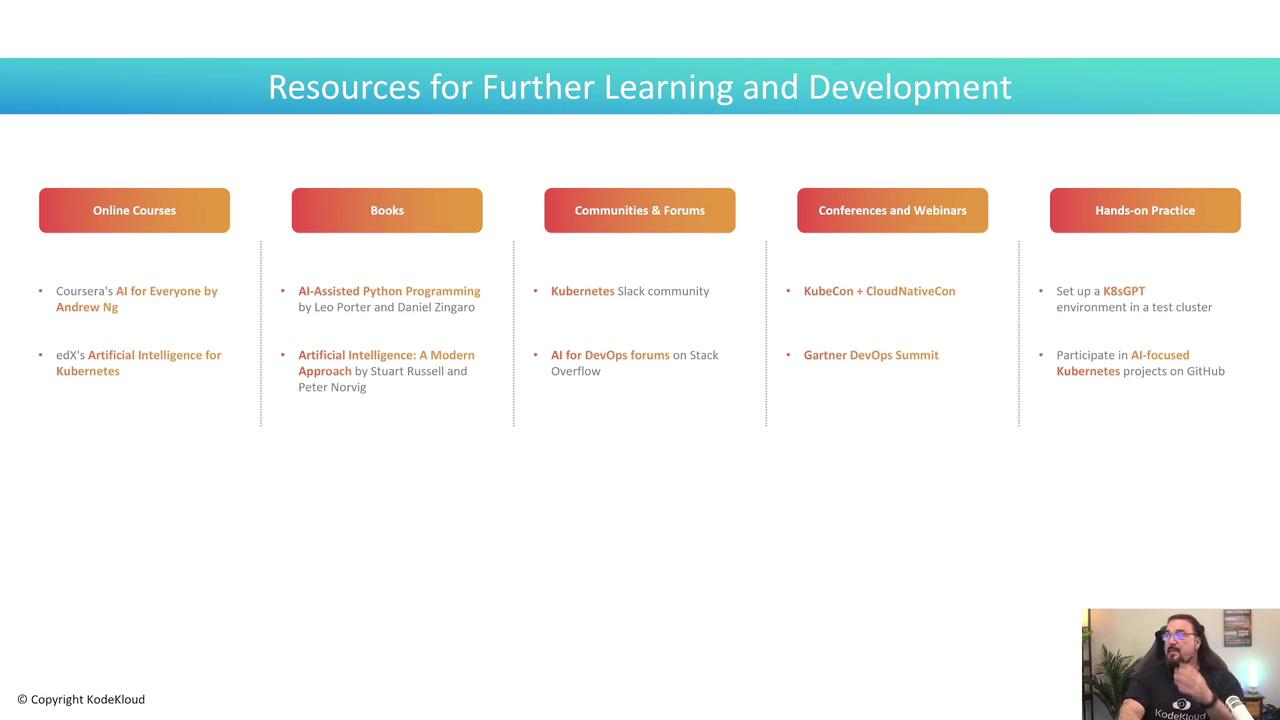
Note
AI-driven Kubernetes adoption typically unfolds over a 3–5 year roadmap. Plan accordingly.
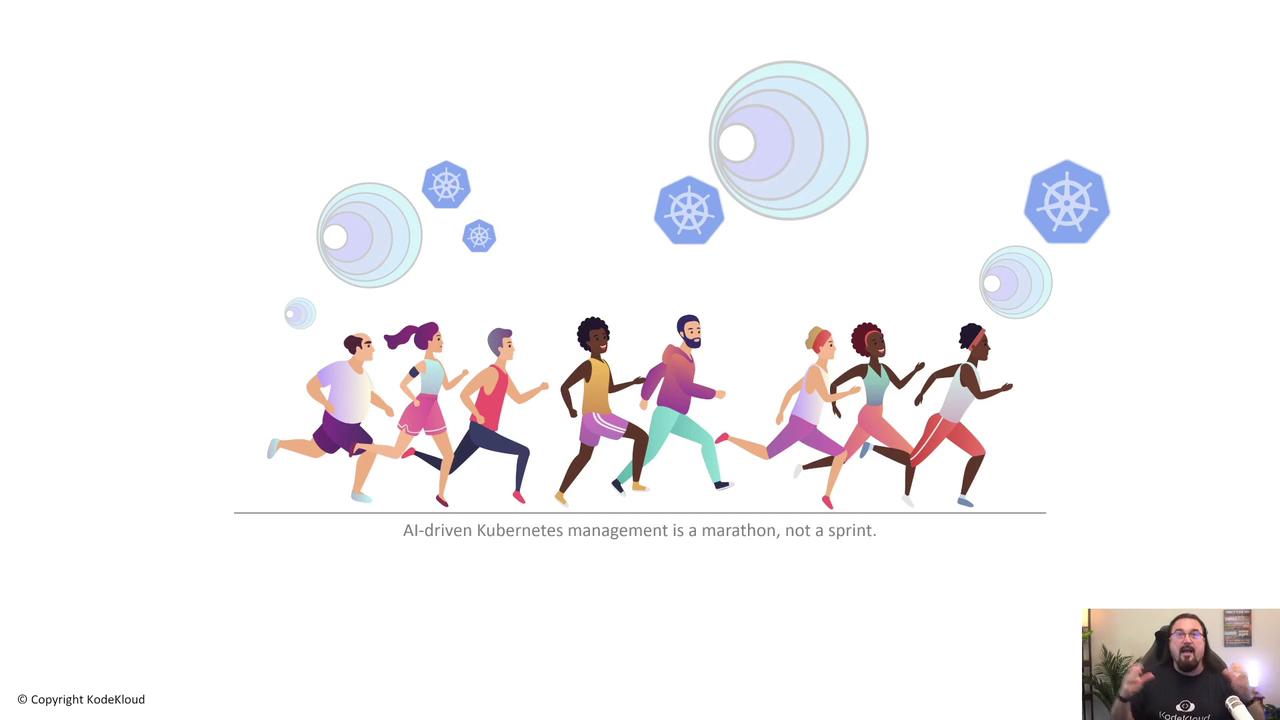
Warning
Always validate outputs from AI agents to prevent misconfigurations and security gaps.
A Multi-Agentic Future for DevOps Engineers
Imagine it's 2027 and you join a team with one request:
"Deploy Super Rhino v4 on AWS EKS with a three-tier architecture, full observability, and A/B testing in production."
- The DevOps interface agent accepts the request.
- A central work agent orchestrates the workflow.
- The architecture agent verifies three-tier best practices.
- The testing agent designs the A/B testing plan.
- The deployment agent rolls out to EKS.
- The observability agent configures dashboards.
- The customer-experience agent directs traffic between v3 and v4.
- The scaling agent adjusts nodes for 50,000 users.
- The security agent runs compliance scans.
- The costing agent tracks resource spend.
- The documentation agent updates runbooks and wikis.
- A retrospective agent analyzes metrics for continuous improvement.
All agents learn and optimize, while you focus on edge-case troubleshooting and agent tuning.
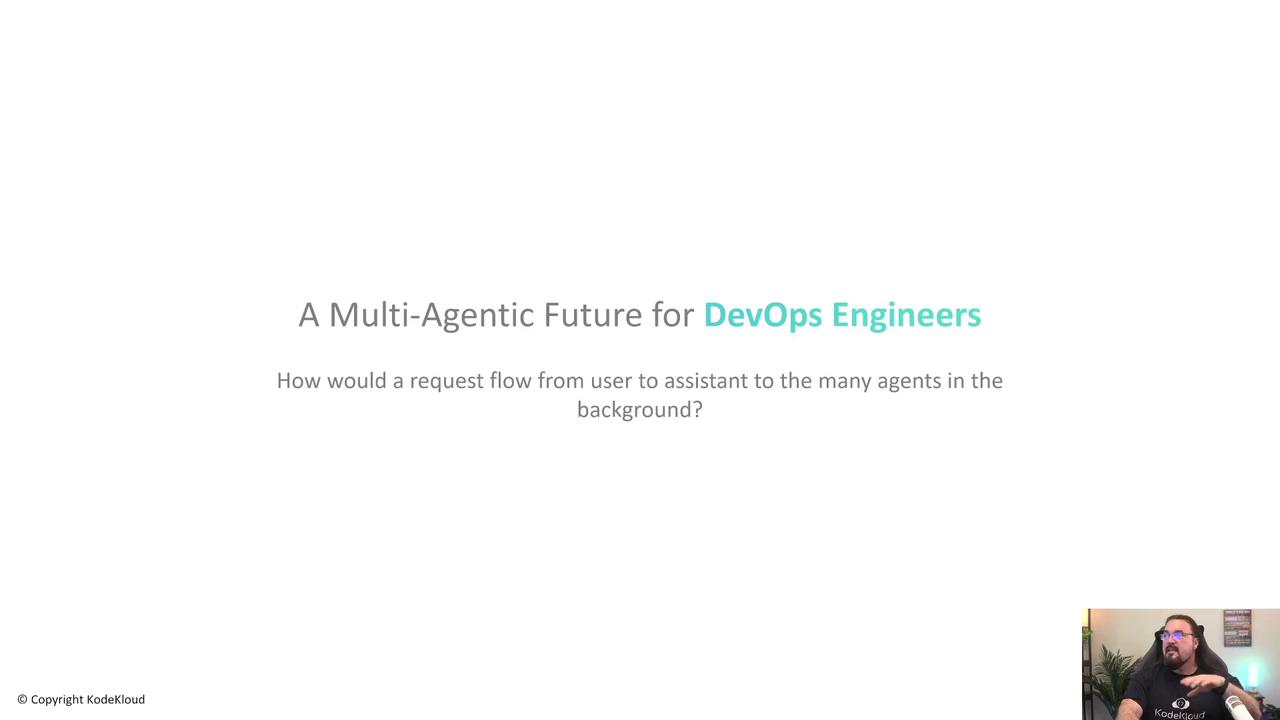
Never Lose Core Technical Expertise
Automation offloads routine tasks, but in-depth knowledge remains vital:
- Kubernetes clusters, controllers, and CRDs
- Cloud platforms: AWS, Azure, GCP
- Linux internals and networking
- Programming languages: Python, Go, Bash
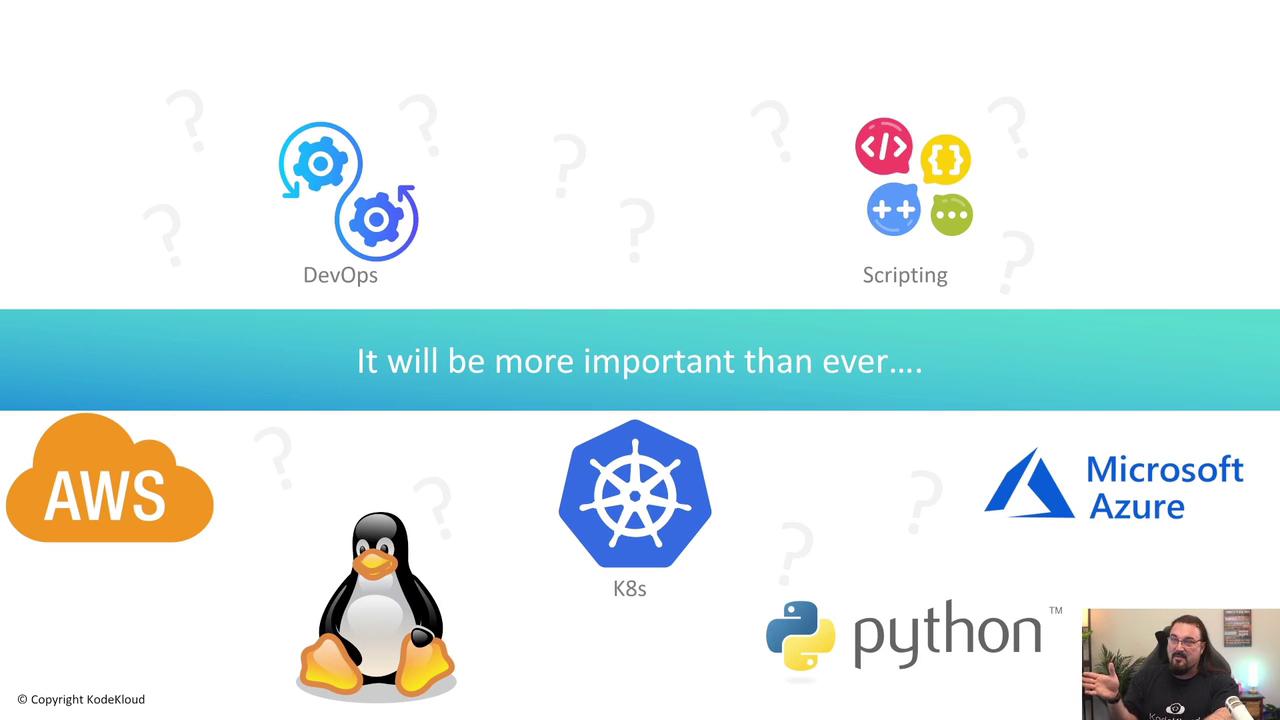
Conclusion
AI is reshaping Kubernetes management by improving efficiency, accuracy, and insight. Tools like K8sGPT accelerate autonomous operations, but human expertise is essential for complex, edge-case scenarios.
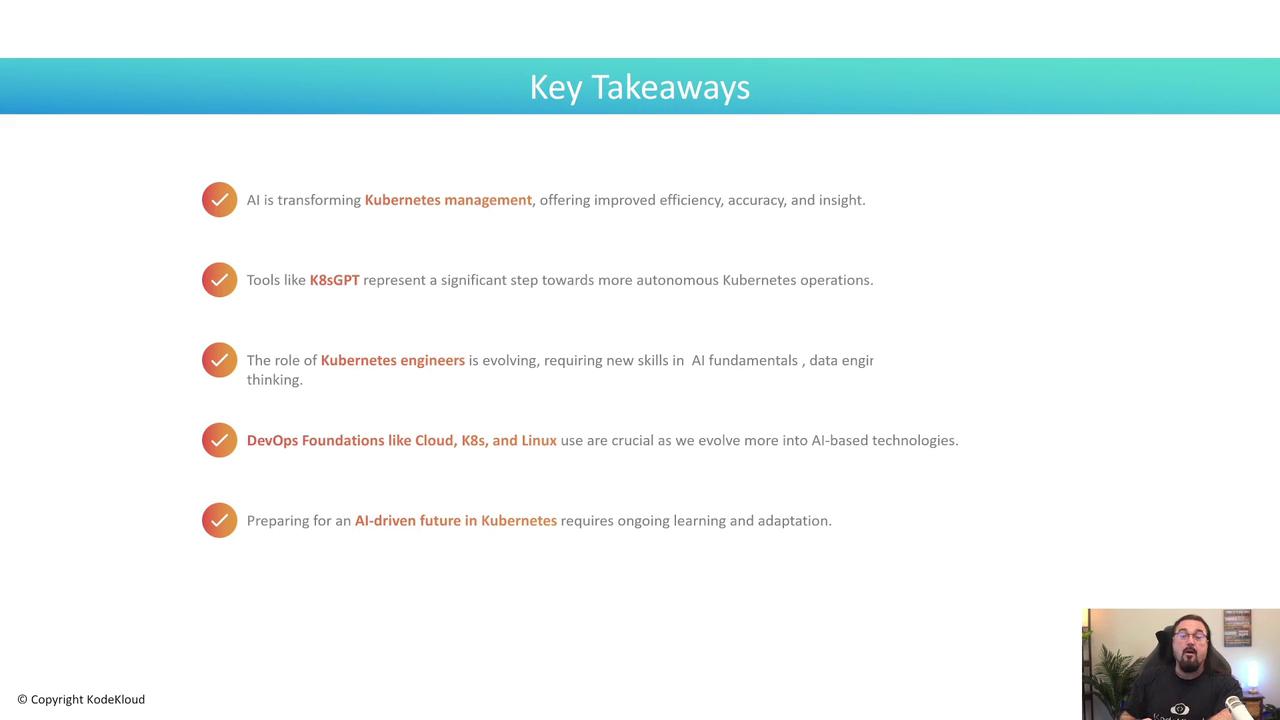
Call to Action
- Explore AI-powered Kubernetes tools in your workflow.
- Invest in AI and machine learning training for your team.
- Engage with Kubernetes and AI communities.
- Audit and refine current CI/CD pipelines.
- Develop a clear AI strategy aligned with business goals.
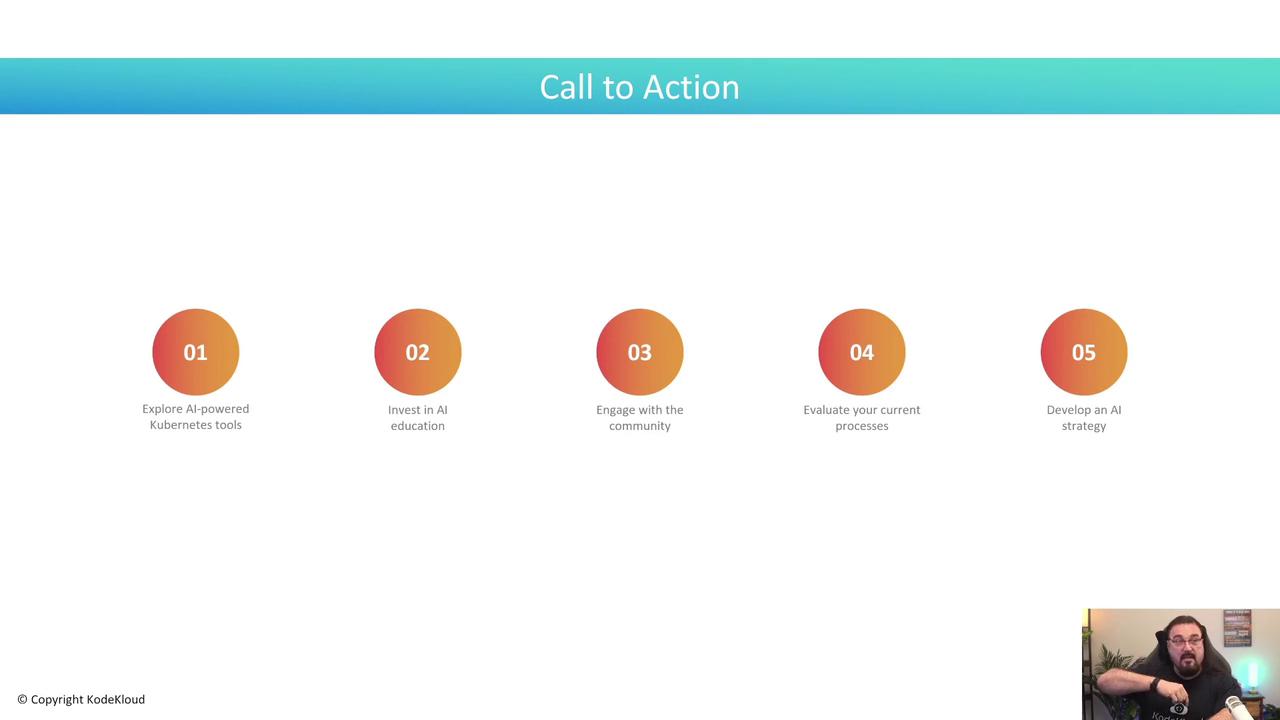
Thank you for participating in this lesson. Equip yourself with these insights to thrive as an AI-driven Kubernetes and DevOps engineer.
— Michael Forrester
Links and References
- Kubernetes Basics
- Kubernetes Documentation
- K8sGPT GitHub Repository
- edX AI & Kubernetes Courses
- Stack Overflow: AI for DevOps
Watch Video
Watch video content